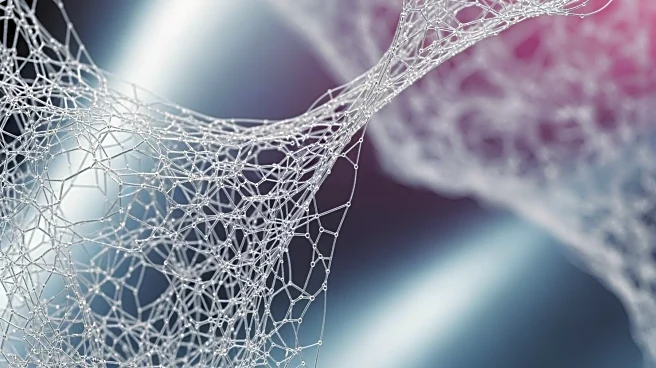What's Happening?
A recent study published in Nature Materials details the development of artificial cytoskeletons within synthetic cell systems. The research focuses on the temperature-driven condensation of poly-adenine
(polyA) and poly-thymine (polyT) sequences, which form core-shell DNA-based condensates. These structures are functionalized with DNA barcodes for selective enrichment and mechanical coupling. The study highlights the importance of controlling the local concentration of DNA tiles to observe cytoskeleton formation in crowded environments. This advancement in DNA nanotechnology could have significant implications for the field of chemical engineering.
Why It's Important?
The development of artificial cytoskeletons represents a significant advancement in DNA nanotechnology, potentially impacting various fields such as drug delivery and molecular diagnostics. By enabling precise control over the formation of cytoskeleton structures, this research could lead to more effective synthetic cell systems. This has implications for industries focused on biotechnology and nanotechnology, offering new avenues for innovation and application in medical and scientific research.









